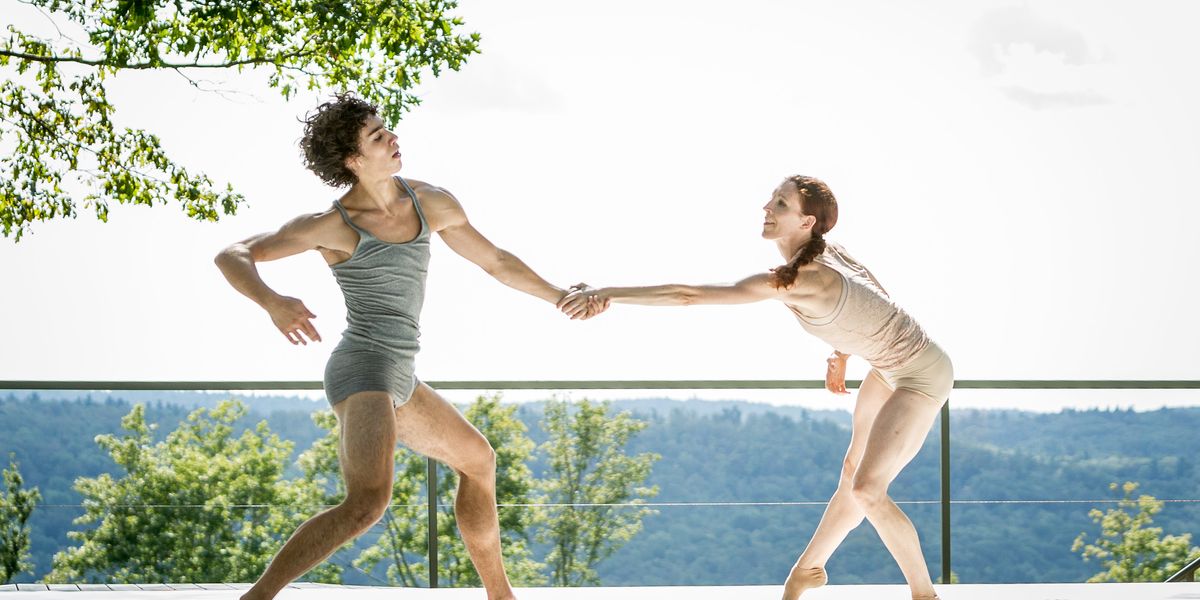What These Five Choreographers Actually Think of Their Reviews
Love them or not, reviews are part of the ecology of being a dancemaker. Critical writing can validate, illuminate or sometimes get in the way of an artist’s creative process. We spoke with five choreographers about their relationship to reviews.
Sergio Trujillo
Sergio Trujillo understands that Broadway reviews function differently than concert dance reviews: Although his work is crucial to the pacing and look of the show, he may only get acknowledged in a sentence. And by the time the review comes out, Trujillo is already at work on his next project. He does find reviews from out-of-town trials useful, as well as ones for dance shows, like his tango-infused Arrabal. “I reassessed a couple of moments so the narrative came through more clearly,” he says. Most often he finds the advice from sages like Christopher Wheeldon and Jerry Mitchell, whom he brings into rehearsals, most valuable. “I distanced myself from reviews early on in my career,” he says. “We can’t be enslaved to them. We need to serve our own artistry. It’s just one person’s point of view. The truth comes from the audience.”
Gabrielle Lamb
Contemporary ballet choreographer Gabrielle Lamb has learned things from reviews that have changed her trajectory. “Once, a reviewer mentioned that all the works in a program used short pieces of music,” she says. With that in mind, she chose a longer piece for a later work. Reviews also let her know how the work is coming across. “I spend so much time on a piece that it’s hard for me to know how it is being perceived,” she says. Lamb is flattered when someone writes something beautiful, but has felt the punch of a less than favorable review, too. “It is a bit of an out-of-body experience,” she says. “Most often negative reviews are dismissive and don’t contain much in the way of information. I remind myself that some of the choreographers I admire most have gotten some blistering reviews. In one recent case, the critic had reviewed a show I’d watched, and our opinions had been exactly opposite. Why should I expect that person to enjoy my work?”
Claudia Schreier
Though her career trajectory put her in the spotlight sooner than most choreographers, Claudia Schreier has adapted quickly to the rigors of being a New York City–based artist. The Harvard-educated dancemaker sees reviews as a necessary part of the equation. “I’m grateful there is a critical response, regardless of what is said,” says Schreier. “There’s a certain responsibility on both sides in holding up the integrity of the art form.” Schreier has taken critics’ comments seriously at times. “Often I am already thinking about the things they mentioned,” she says. “Translating dance into words is the gift of the critic, so to hold that reflection back at you can be incredibly helpful.” Schreier has been made aware of ideas operating in her work that lent her direction for the future: Multiple reviews mentioning her musicality gave her the confidence to explore that quality further. “Sometimes, they can see patterns that I didn’t see on my own,” she says. She also realizes that some of what is said is not relevant to her process. “It’s important to stay true to yourself. It’s so easy to get derailed.”
Joe Goode
Reviews, good or bad, are not Joe Goode’s favorite subject. “What I do is so personal. It’s me. It’s my heart. My truth,” says the San Francisco–based choreographer, who has sworn off reading reviews completely. “I’m like a sponge. To have a stranger look at my work and say this part was too slow makes me question my choices. I resent having myself redirected by someone who wasn’t informed by my process. Even a good review can influence you for the wrong reasons.” Goode does bring in a few people he trusts to see works in progress. He also finds that there’s a new generation of writers who want to engage with the work through a more exploratory process. “They are looking at the work with curiosity and questions, not a thumbs up or down approach,” he says. “That’s really healthy.”
Rosie Herrera
Critics have compared Rosie Herrera to Pina Bausch for her theater-infused works. “When I first heard that, I thought, Cool, who is that?” says Herrera, laughing. Early on, Herrera had the advantage of a local critic writing for the daily paper in Miami, which meant previews and reviews. “The critic was able to offer context. Whether the review was good or bad, it was coming from a place of knowledge, and that’s always valuable.” Herrera has also survived the knife of a New York Times review. “It’s New York, everyone gets bad reviews,” she says. “I do read them, but not the day after. Once I have a firm grasp on the successes and failures of the show and a clarity of where I want to go next, only then can I read it.” n




